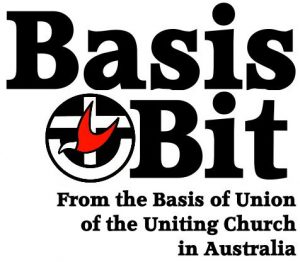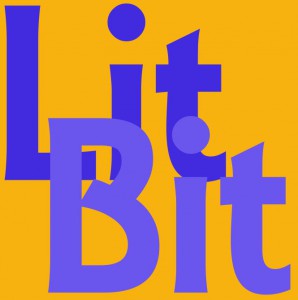17 March – Chasing the wind
Lent 2
17/3/2019
Ecclesiastes 8:14-17
Psalm 27
Luke 13:11-35
In a sentence:
We are not called to chase the wind but to become the wind
Human history – the sphere of decision and action – is the sum of our responses to the world as we see it to be, or imagine it to be, or as it has been described to us. The world works – or is supposed to work – in particular ways, and history is what happens as we anticipate and respond to that perceived order of things.
The problem is – as Qohelet and we know well enough – that things don’t always go as expected. And so, as an example from today’s text: there are righteous people who are treated according to the conduct of the wicked, and wicked people who are treated according to the conduct of the righteous. We don’t have to look far to confirm this. As a righteous response to what we have heard from God, we might go to prayer in the mosque, or the church, and find ourselves not in heaven but in hell.
This violation of what would seem to be the appropriate order is part of what Qohelet means when he names as ‘vanity’ our attempts to manage life. Such vanity is not a matter of stupidity or foolishness but has to do with the nature of things: ‘no one knows what is happening under the sun’, we have also heard from him today.
‘No one knows’ because the true order of things – which we never quite grasp – manifests itself among us with the character of ‘wind,’ which cannot be held still to be measured or calculated. And so history – our effort to discern the order of things and to secure ourselves – becomes a matter of ‘chasing after wind’, one of Qohelet’s favourite phrases.
Through Lent we’re reading Qohelet in dialogue with the set gospel for each Sunday to see how Qohelet illuminates the ministry of Jesus, and vice-versa. At first sight, the relationship between the two readings today might seem pretty obscure, but let’s see…
Jesus receives visitors from the Pharisees who carry a warning: King Herod seeks to kill you. In response, Jesus names Herod ‘that fox’ – the cunning one, the calculator, the strategist. As a ‘fox’ Herod suddenly looms large as Qohelet’s vain schemer – the one who thinks he or she knows the order of things and plots a future according to that knowledge. Herod’s calculation has measured Jesus and plotted a future without him. Again we might think of angry men with guns in a mosque.
What Jesus doesn’t do in response to Herod is enter into a reactive scheme of his own. Jesus has no plan. We heard last week of his temptation in the desert, in which he is offered a number of strategies for making his case as Messiah to the people – feed them with bread; impress them with miraculous demonstration; let the end justify the means. Each one of these would be in its own way the kind of vanity which Qohelet decries: an attempt to catch the wind.
To all of that Jesus answered no, and the same answer is implicit in his response to Herod. Rather than a counter-strategy, Jesus sends the messengers back to Herod: ‘Go tell that fox, I am the wind. I must be on my way, and he will not catch me until he can say, “Blessed is the one who comes in the name of the Lord”’.
The true order of the world which Qohelet names the wind is Jesus himself. Everything we chase after – everything which matters – looks like Jesus. Here is what we strive after and what we cannot catch. This is what we seek in our churches and our mosques and our synagogues, our universities and our stadiums and our shopping centres, in our sea changes and tree changes and mid-life crises. Whether we go to these places in order to ‘pray’ according to the pattern of that particular place, or go there to kill, in all this we are chasing the wind, trying to catch up with God, and so with ourselves.
What hope is there for us? Only the hope which is Jesus himself, one of us and yet the wind, tangible yet ungraspable, what we work so hard for and yet an unearned gift.
Qohelet’s answer to those who exhaust themselves chasing after wind is sometimes criticised as defeatist, a mere resignation in the face of life’s difficulties, even self-indulgent. We heard this morning:
I commend enjoyment, for there is nothing better for people under the sun than to eat, and drink, and enjoy themselves, for this will go with them in their toil through the days of life that God gives them under the sun.
Read most positively, Qohelet’s ‘enjoyment’ is a letting go of our ever-frustrated attempts to catch the wind. It is a coming-to-terms with life as it just incomprehensibly is. In a world which runs in the way that Qohelet describes – from pillar to post, from prayer to cold-blooded murder – in such a world Qohelet’s ‘enjoyment’ amounts to becoming something like the wind itself – an incomprehensible contradiction of what seems to so many to be to be natural purpose of life: chasing what cannot be caught because we cannot grasp what is happening under the sun.
For the gospel it is the same, although we have a different way of saying it. The gospel draws links between the body of Christ which was Jesus’ own body before Herod and on the cross, and the body of Christ on the communion table, and the body of Christ which we are made to be as we receive him in the bread and the wine. To become entangled with Jesus, then, in the way that we are called to be, is not a matter of making sense of the order of the world, not a matter of chasing after wind. It is a matter of becoming, in him, the wind.
This is not a solution to the problems of life under the sun; ‘solutions’ (so-called) are a chasing after wind, as will be almost everything which is said in response to last Friday’s horror. Jesus is not a solution to the shocks which life sometimes presents but it is an answer to them.
Jesus must haste to Jerusalem because that is – vanity of vanities – where the prophets die. His mode of being does not solve the problem. The catastrophe of the cross, of the just being treated according to the conduct of the wicked, is not averted. But is catastrophe and not tragedy. Jesus has already died to Herod and Caiaphas and Pilate in his commitment to continuation on the path that God set before him, wherever it might lead. The cross is the sign that Jesus is no chaser after wind; he is the wind, the free one, despite everything which happens to him.
Jesus’ commitment is Qohelet’s ‘enjoyment’ – not hedonistic indifference but the embracing of a way of being which will strengthen us ‘in our toil through the days of life that God gives us under the sun’.
Do we not need such strength, to toil, to resist, properly to enjoy and to grieve, according to the season?
In our baptism, we entered into the death of Jesus himself – not simply the death he died on the cross but that death to chasing the wind which was the mark of the whole of his life.
Let us, then, look to Jesus not as yet another a chasing of the wind,
but that we might further grow into our baptism by learning the wisdom he is,
and begin to become for the world what he is becoming for us.



